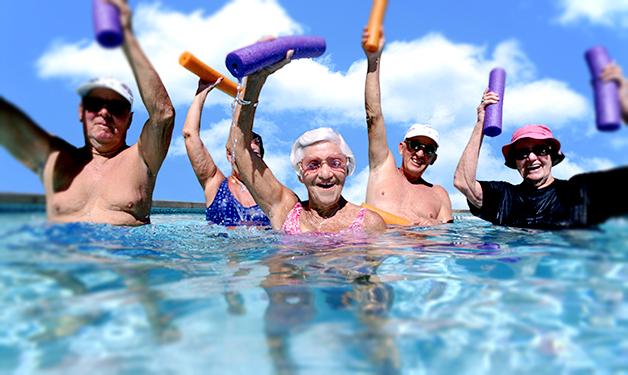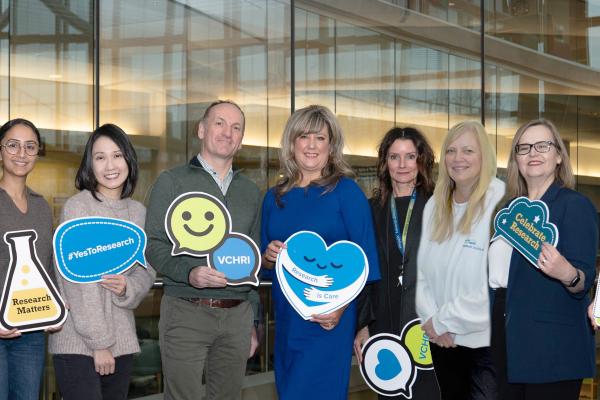
Study finds that aerobic exercise could prolong independence and improve quality of life for VCI dementia patients.
Aerobic exercise hit peak popularity in the ‘80s and is now showing to be highly beneficial to people in their 80s (and in all older age groups). New research by Vancouver Coastal Health Research Institute scientist Dr. Teresa Liu-Ambrose finds that 60 minutes of good old-fashioned aerobic exercise may be more potent than any pill to reduce older adults’ risk of cognitive decline due to mini-strokes.
“Lots of evidence has shown that exercise is a great primary prevention strategy for dementia and cognitive impairment but there is also evidence showing that exercise is a great secondary prevention strategy for those who are already showing signs of cognitive decline,” says Dr. Liu-Ambrose, Canada Research Chair, Physical Activity, Mobility, and Cognitive Neuroscience at the University of British Columbia and researcher at the Djavad Mowafaghian Centre for Brain Health.
Although Alzheimer’s disease is the most common cause of dementia in older adults, cerebrovascular disease as the second most common cause is as worrying a concern. However, research suggests that reducing dementia risk is possible by reducing heart health risk factors, such as high blood pressure, and possibly even slow down the progression of cognitive decline caused by silent mini-strokes, also known as vascular cognitive impairment (VCI). Of note, population studies suggest silent mini-strokes are common, even among middle-aged adults.

Dr. Liu-Ambrose and colleagues presented findings from their study at the recent Alzheimer’s Association International Conference 2015 in Washington, D.C. The study, followed 71 adults aged 56 to 96 with confirmed cases of mild VCI for six months. Participants were assigned to two groups: one that did supervised aerobic exercise three times per week for 60 minutes with certified fitness instructors, and the other that received standard care plus an education seminar on nutrition once per month. All classes were held at the Centre for Hip Health and Mobility. Sixty-two of the 71 participants completed the full six-month study that included completing a memory and thinking test at the beginning and end of the study.
Functional brain scans acquired before and after the six-month study showed that the brains of study participants became more efficient in those who took part in the aerobic exercise training. Additionally, the group that took part in aerobics classes improved their cognitive function significantly, including memory and selective attention, compared to the participants who received standard care. They also significantly reduced body mass index and increased functional capacity.
“While these new and promising results need to be replicated in larger and more diverse populations, the fact that aerobic exercise can improve cognitive function in VCI means that people with the condition can hope there may soon be a proven tool they can use to prolong their independence and improve their quality of life,” says Dr. Liu-Ambrose.
“Moreover, it is now recognized that dementia is likely the result of long-term processes occurring over at least 20 to 30 years. As a result, there is a huge emphasis on starting interventions at earlier stages of life and in this regard, exercise is one strategy that can be recommended to all individuals across the lifespan.”

“Think about if it’s your mother today and she has some cognitive issues. Even if you could buy her six months or one year of a better quality of life by her exercising, you and your family would value and appreciate it,” says Dr. Liu-Ambrose. “It’s about buying that kind of precious time. An absolute cure for dementia would be fantastic, but if maintaining one’s independence and quality of life in the face of a formal diagnosis of cognitive impairment is still very significant.”


